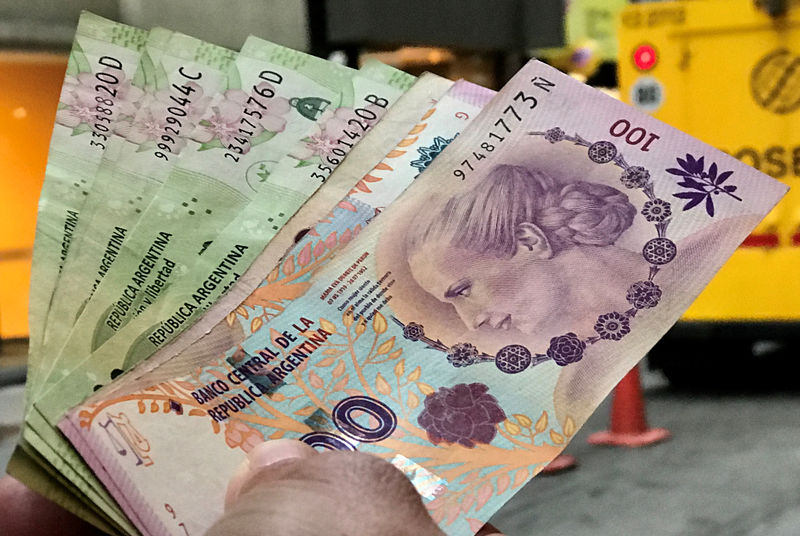By Eliana Raszewski
BUENOS AIRES (Reuters) - Argentina's new 2,000-peso bill, the largest denomination note, went into circulation on Monday, though due to fast depreciation of the currency it is worth only $8.50 at the official exchange rate and just over $4 in commonly used parallel markets.
The peso has shed around a quarter of its value against the dollar this year despite strict capital controls that slow its fall. Most Argentines buy dollars in unofficial markets where they trade at over 480 pesos versus the official rate of 235.
The South American nation is also battling inflation at 109%, one of the highest in the world, which a central bank poll estimates could hit nearly 130% by the end of the year. The interest rate has been hiked to an eye-watering 97%.
With around half of all commercial transactions still carried out in cash, the new largest bill should partially ease issues that have seen banks run short of vault space and both locals and tourists often carry around bags of cash to pay for things.
"This higher denomination bill will improve the operation of ATMs and at the same time optimize the movement of cash," the central bank said in a statement on Monday. The largest bank note previously had been the 1,000 peso bill.
The new 2,000 banknote has a design commemorating the development of science and medicine in Argentina, the central bank said.
